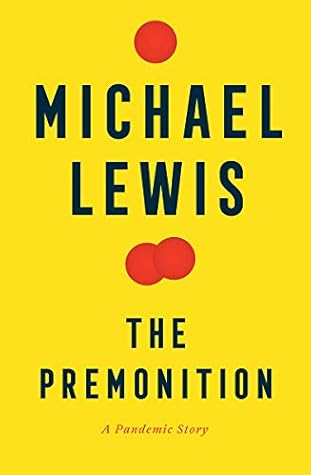More on this book
Community
Kindle Notes & Highlights
“The kind of science I was able to do with my dad was very different from the kind of science I did in school,” she said. “I always struggled with science in school.” With her dad, science was this tool for finding cool new questions to ask, and answer. Exactly what questions didn’t matter: her father had no respect for the boundaries between subjects and thought of all sciences as one and the same.
“We wasted the first week,” said Rajeev. “It was smart people trying to create the thing by consensus. You can’t write a strategy by committee.”
Once Carter saw Richard’s enthusiasm, he, too, opened what Bob Glass had sent and started playing around with it. The math he understood. The thinking was clear and simple. All the rules the guy and his daughter had used to describe the social lives of kids and grown-ups felt plausible. Ditto the rules governing the spread of the disease. The only problem was that the model’s output was just a bunch of numbers listed in these mind-numbingly long tables. “Most people can’t read tables,” said Carter. “They need to see it graphically.” Carter turned the numbers into a graph. The picture shocked
...more
He learned that there were more than one hundred thousand K–12 schools in the country, with fifty million children in them. Twenty-five million rode a bus to school. “I thought, Holy crap, half the kids in the U.S. hop on a school bus.” There were seventy thousand buses in the entire U.S. public transportation system, but five hundred thousand school buses. On an average day, school buses carried twice as many people as the entire U.S. public transportation system. A lot of the talk in the White House pandemic planning room had been about grown-ups: how they worked and traveled. “We’d been
...more
How kids got to school was one issue; what happened once they were there was another.
Look! he said, as they passed children waiting for the school bus. Look at the way kids stand at the bus stop. When adults stand at a bus stop, they give each other space. Kids are like those close talkers on Seinfeld. He and Debra entered the school. Look! It’s just a sea of humanity. I could almost walk across their heads! He watched the way they horsed around and jumped on each other’s backs and behaved in ways that he no longer did. Look! They’re so different. They’re not little adults. They have a different sense of space.
Leaving the school, he saw a bus and boarded it, with a tape measure. The seats turned out to be forty inches long. “They estimate kids’ hips are thirteen inches across so they can put them three to a seat,” he said. The aisle was narrower than a normal bus; paramedics knew not to bring a normal-sized stretcher onto a school bus, he later learned, because it wouldn’t fit down the aisle. “I couldn’t design a system better for transmitting disease than our school system,” he said after his visit.
“There is nowhere, anywhere, as socially dense as school classrooms, school hallways, school buses,” said Carter.
“You cannot run out of options. Because what do you do when you run out of options? You panic. Having something in front of you, a map, a plan, a list of treatments, even if it isn’t completely right, is better than nothing.”
“The whole thing assumed you would know how bad the pandemic was. And that was a really bad assumption. This fog, this not knowing, is such a big part of it. You almost need to be clairvoyant.”
Managing a pandemic was like driving a weird car that only accelerated, or braked, fifteen seconds after you hit the pedal.
“A peacetime institution in a wartime environment,” Carter called it. Its people were good at figuring out precisely what had happened, but by the time they’d done it, the fighting was over.
“It’s science’s dark secret,” he said. “If you actually look at the great discoveries—okay, maybe not in astrophysics, but in medicine and biology—you don’t have to go back more than a couple of steps to find a chance observation.” Science was just curiosity’s tool. Progress often began when someone saw something they hadn’t expected to see and said, “Huh, that’s weird.”
“It’s often individuals who pick up the baton, and they’re not even doing it as part of their day job description,”
Everywhere she turned in government she saw this distinction, in leaders, between Churchills and Chamberlains. The people who presided in times of peace tended to have a gift for avoiding or at least disguising conflict. People made for battlefield command did not find their way into positions of authority, at least not until the general public sensed existential risk.
Everyone has a story they tell themselves about themselves. Even if they don’t explicitly acknowledge it, their minds are at work retelling or editing or updating a narrative that explains or excuses why they have spent their time on earth as they have.


